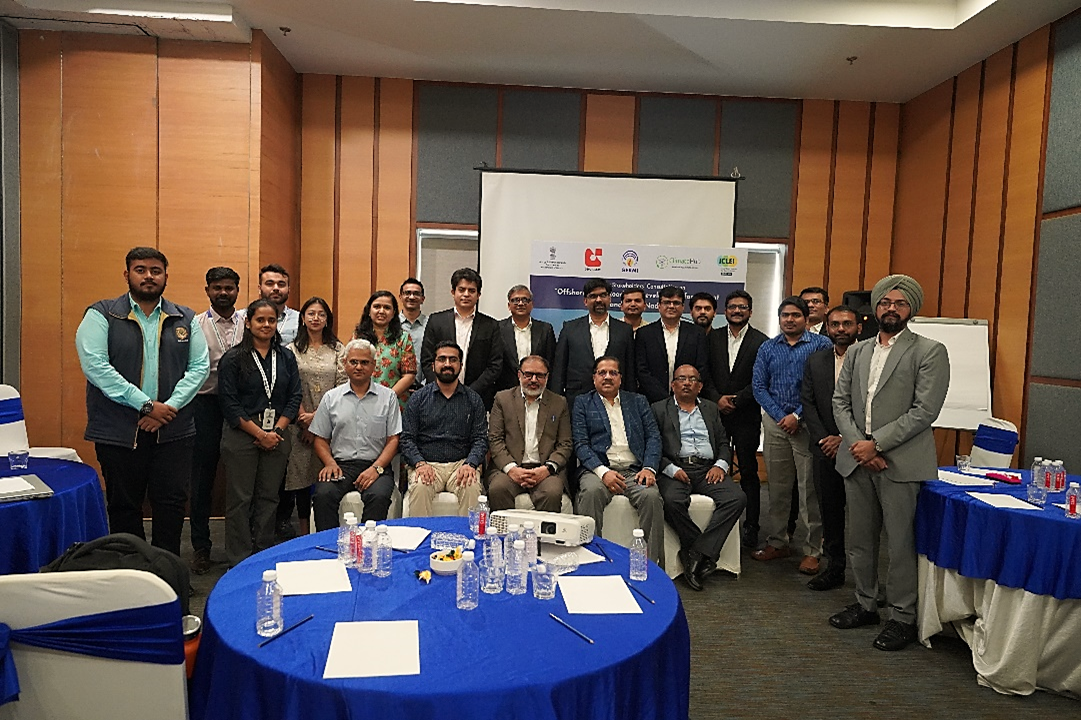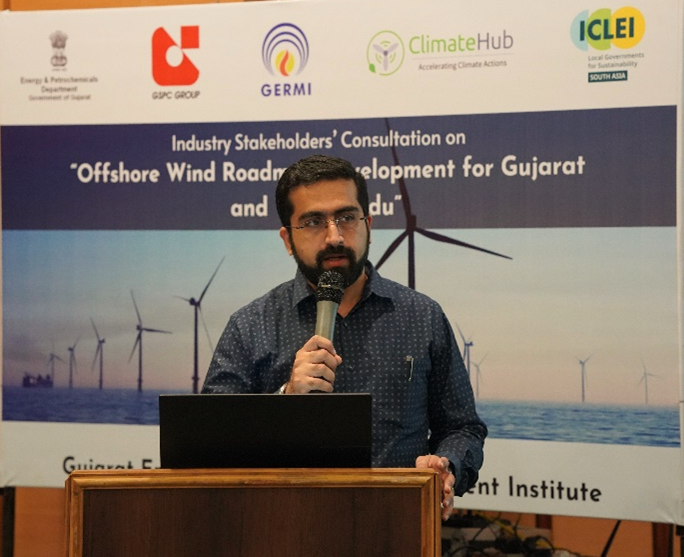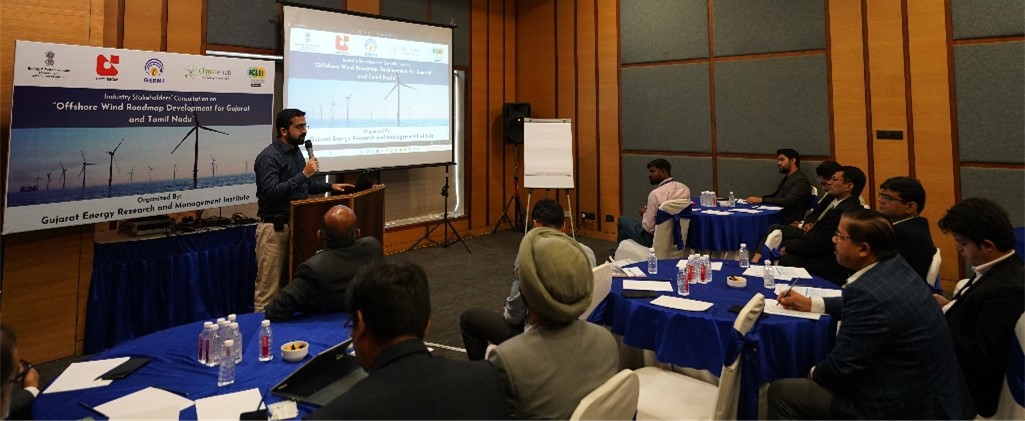
The Gujarat Energy Research & Management Institute (GERMI) and ICLEI South Asia jointly organised an Industry Stakeholder’s Consultation on ‘Offshore Wind Roadmap Development for the State of Gujarat and Tamil Nadu’ on February 3, 2024, at Ahmedabad, Gujarat. The government agencies and decision-makers gathered from two states to promote early-stage market development and ecosystem readiness. The roadmaps prepared through multi-stakeholder consultations and inputs will delineate the current situation, opportunities, specific challenges, and potential off-takers, and identify enabling strategies and actions, financing approaches, and coordination necessary.

Siddharth Arora Associate Director, Clean Power, Shakti, said in the opening remarks at the event, “It is important to involving key stakeholders from the industry to ensure that diverse perspectives, expertise, and insights are taken into consideration in the planning and development process. This collaborative approach helps identify challenges, harness opportunities, and establish a strategic framework that aligns with the unique needs of the offshore wind sector in these states. Industry consultation provides a more inclusive and informed decision-making process, promoting the creation of a robust roadmap that not only addresses industry-specific requirements but also maximizes the potential for sustainable and efficient offshore wind development in Gujarat and Tamil Nadu.”

Offshore wind (OSW) energy is crucial to achieving global decarbonisation goals and net-zero emissions. As per estimates by International Renewable Energy Agency (IRENA), to achieve the global net zero emission target, OSW installations could reach over 230 GW by 2030, increasing to 620 GW by 2040 and a staggering 2,000 GW by 2050. In comparison, as of 2022, the total global OSW capacity was 64.3 GW. This accounted for 7.1% of global wind power installation.
Large-scale, clean, reliable electricity generation and the potential to stimulate valuable economic benefits and industrial development make offshore wind a promising option. Hence, offshore wind could be a pivotal source for India’s round-the-clock clean power requirements and socioeconomic growth.
